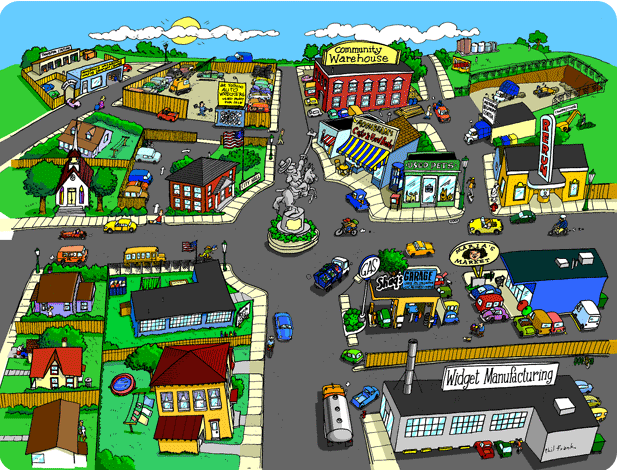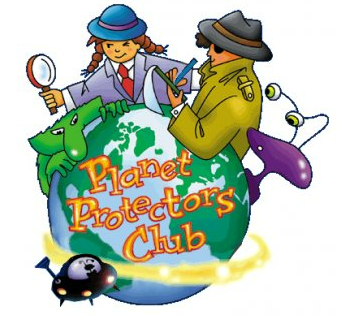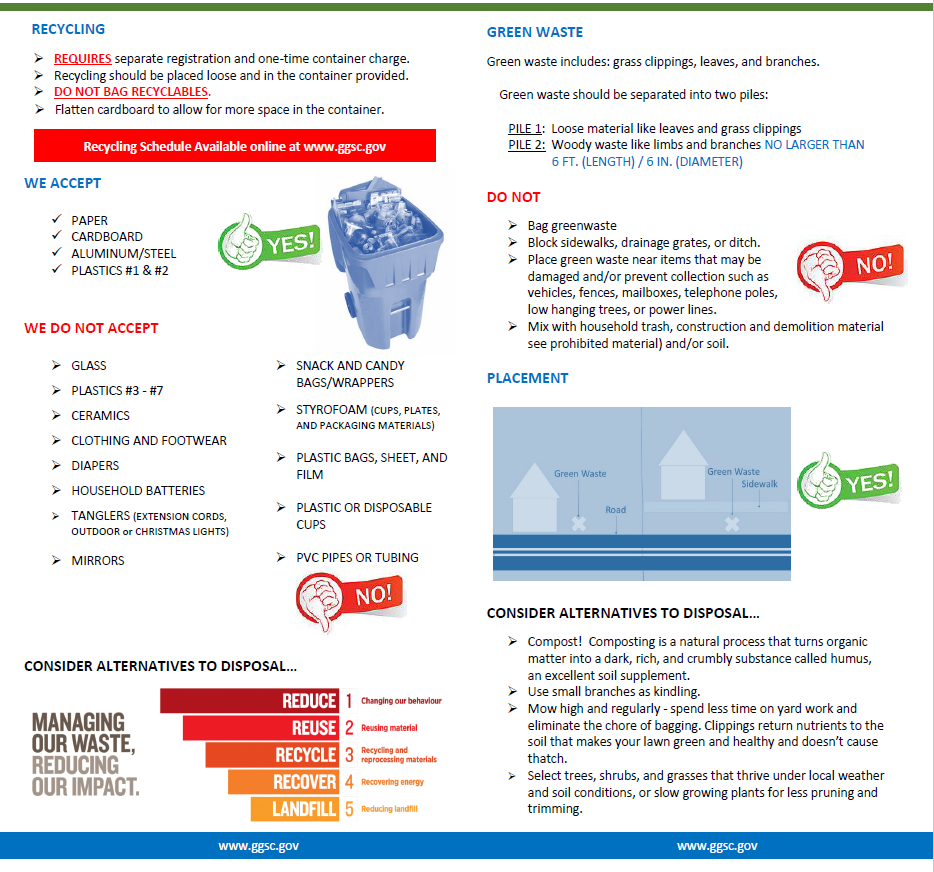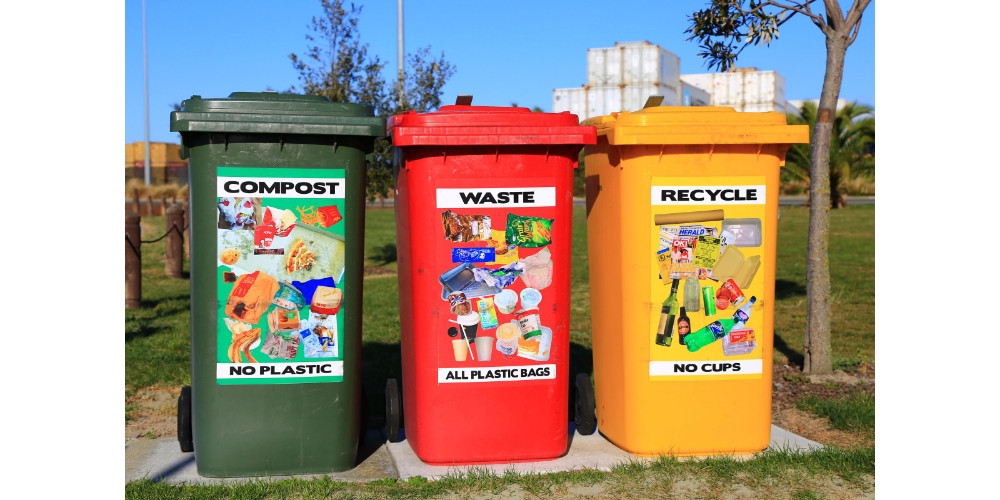
Let nothing go to waste this America Recycles Day! Every year since 1997, America Recycles Day has provided the opportunity to raise awareness about the importance of the four R’s of sustainability: Reduce, Reuse, and Recycle Right. Every day in United States, the average individual produces 4.9 pounds of trash. This translates to 292.4 million tons of municipal solid waste that is generated throughout the nation each year. Of this trash, only about 32 percent is recycled or composted. The majority of the rest of it piles up in landfills, or worse, makes its way through wastewater and other water systems, polluting beaches, oceans, and surface water. Join MetroConnects on this 25th Anniversary of America Recycles Day by taking the #BeRecycled Pledge to learn, teach and practice good habits of reducing, reusing, and recycling right.
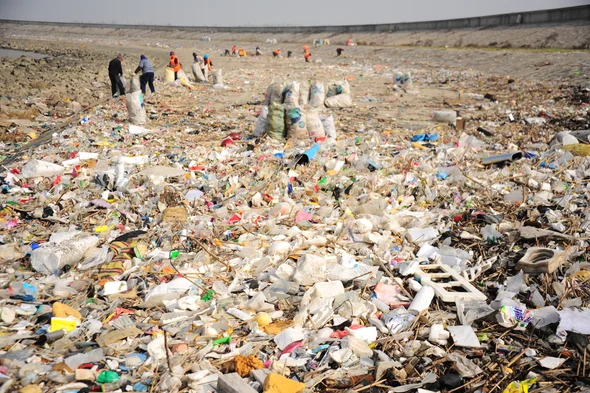
The First Three R’s: Reduce, Reuse and Recycle
America Recycles Day reminds us that recycling is only one of many solutions to help reduce pollution caused by waste. Equally important is reducing the amount of trash you produce in the first place, and reusing what goods you can. For example, try purchasing bulk goods with less packaging next time you are shopping to reduce the amount of clutter your goods produce. Or, this holiday season, consider reusing old gift bags rather than purchasing new ones, or use brown paper bags for wrapping paper (kid helpers can spruce them up with colorful drawings or designs). When you do produce trash, be careful to sort it and recycle what you can. Greater Greenville Sanitation provides curbside recycling of paper, cardboard, aluminum/tin, and some types of plastics in most unincorporated areas of Greenville County. Drop off locations for glass and other recyclables can be found throughout the county.
The Forgotten Fourth: Recycling Right
Be sure to always keep in mind that last R of the four R’s of sustainability: When recycling, you must recycle RIGHT for it to count. Be aware of your local processing guidelines to make sure you are sorting correctly and putting only accepted material into your recycle bins. Avoid “wish cycling,” or trying to recycle items that can’t be processed. Not only does this practice encourage us to let ourselves off the hook when it comes to reducing and reusing, but it also can make the problem of waste worse. Cardboard takeout containers, pizza boxes and disposable Tupperware items with greasy residue or stuck-on food are all common items that we might pat ourselves on the back for recycling, but they actually can’t be processed for recycling and they risk contaminate items near them that could have been. Try composting sullied cardboard instead and avoid restaurants that use Styrofoam or unrecyclable plastic.
The Plastics Problem
Plastics pose a particularly difficult problem when it comes to recycling. According to a 2020 Greenpeace report, most plastic waste is too difficult to collect and sort, is environmentally harmful to reprocess, and often is made of toxic materials “forever chemicals” such as PFAS. “Single-use plastics are like trillions of pieces of confetti spewed from retail and fast food stores to over 330 million U.S. residents across more than 3 million square miles each year,” said Lisa Ramsden, Greenpeace USA senior plastics campaigner. This does not mean that individuals should not put those plastic Coke bottles in the recycling bin. However, consumers should be aware of the limitations of plastics recycling and the potential health hazards the process poses. A better solution to the plastics problem is to limit your use of plastic in the first place, and reuse plastic products yourself whenever possible before you put them in the recycle bin or the trash can. For example:
- Avoid single-use bags. Rather than pack that sandwich or handful of crackers in a single-use Ziplock bag to be thrown away, try PFAS- and BPA-free metal containers or reusable silicone bags. If you do use single-use bags, don’t let the name fool you. Give it a rinse with some soapy water and you can use it a couple more times before it gets worn out (just don’t use water that is super hot — this can increase the amount of BPA that is released). The same can be said for plastic water bottles and plastic food containers. You can reuse them a couple of times before they breakdown. And if you aren’t comfortable using them for food, they make great storage containers for small toys, buttons, stamps, nails or screws, and other small items.
- Forego plastic water bottles. Keep a stock of reusable stainless steel water bottles on hand instead. Keep them filled up and ready to go in the fridge so you won’t be tempted to grab a plastic bottle on your way out the door.
- Skip the plastic soda bottle. When grabbing a refreshment at the gas station, use a reusable cup to fill up with a fountain drink instead of grabbing a plastic bottle. If that isn’t an option, purchase soda in a can instead — cans are more easily recyclable than plastic.
- If you enjoy sparkling water, consider purchasing a water carbonator. Use this water to refill your metal reusable bottles. Add a slice of lemon and you can have your spritzy water ready to go, and save a bundle by skipping the bottles or cans.
- Bring your own bags to the grocery store. Plastic bags are, for the most part, difficult to recycle and easily make their way into wastewater systems and other water sources. Plastic bag recycling sites are becoming easier to find (some grocery stores have bins available), and you can make use of them when you need to, but it is best to avoid the bags altogether when possible.
- Pledge to go a day without plastic. This is a great exercise to do with kids. Can you go a single day without using or purchasing plastic? Two days? Can you make it a week? Keep track of the alternatives you use and always keep them handy!
Educate Others
A final part of the pledge: Educate others about the importance of the four R’s. The U.S. Environmental Protection Agency offers many educational tools that are appropriate for environmental stewards of all ages, including the interactive online activity Recycle City and the real-life detective Planet Protectors Club. Spanish-language versions of activities are also available.
